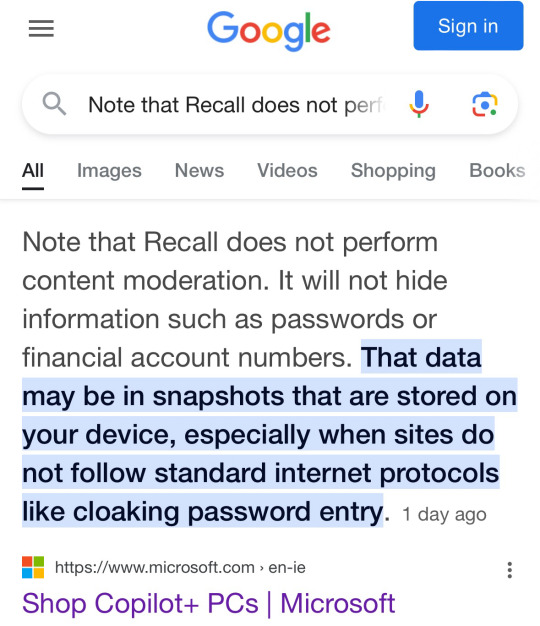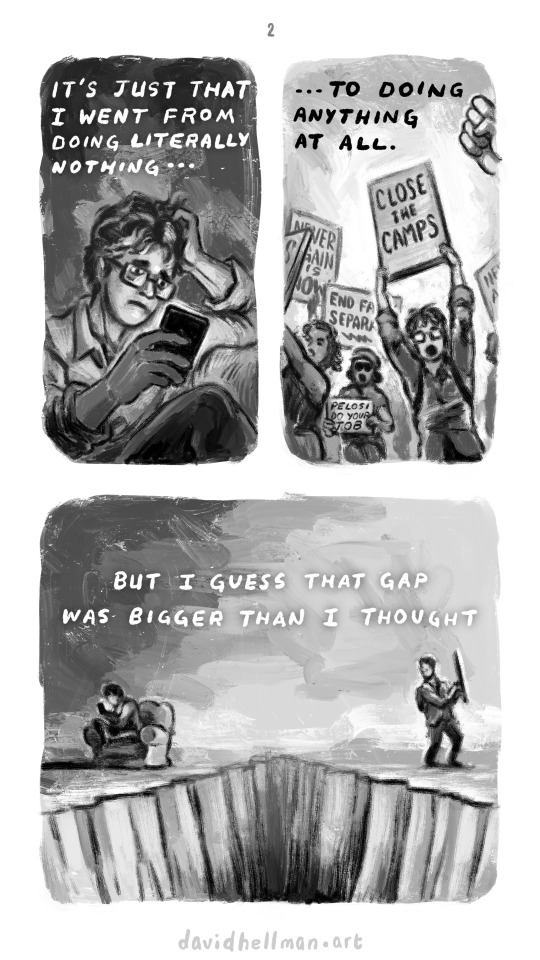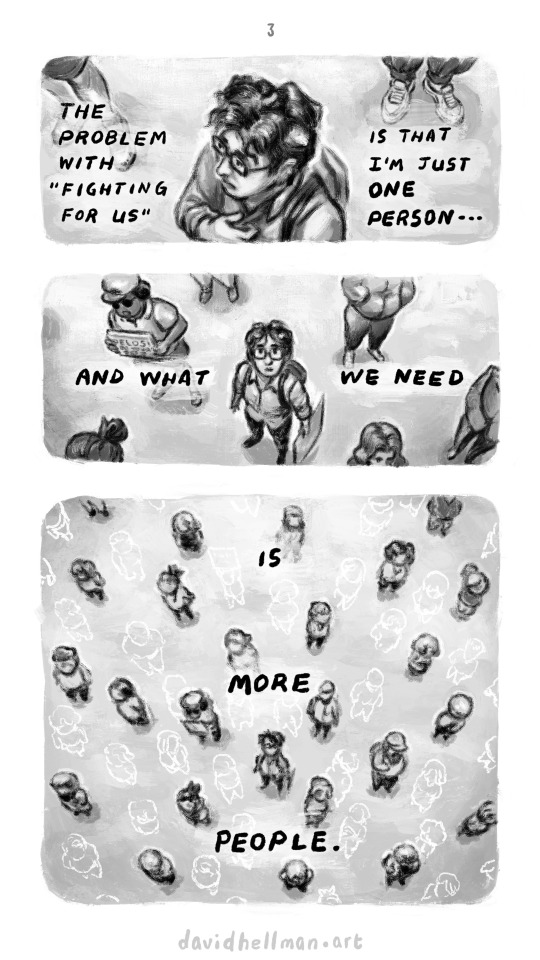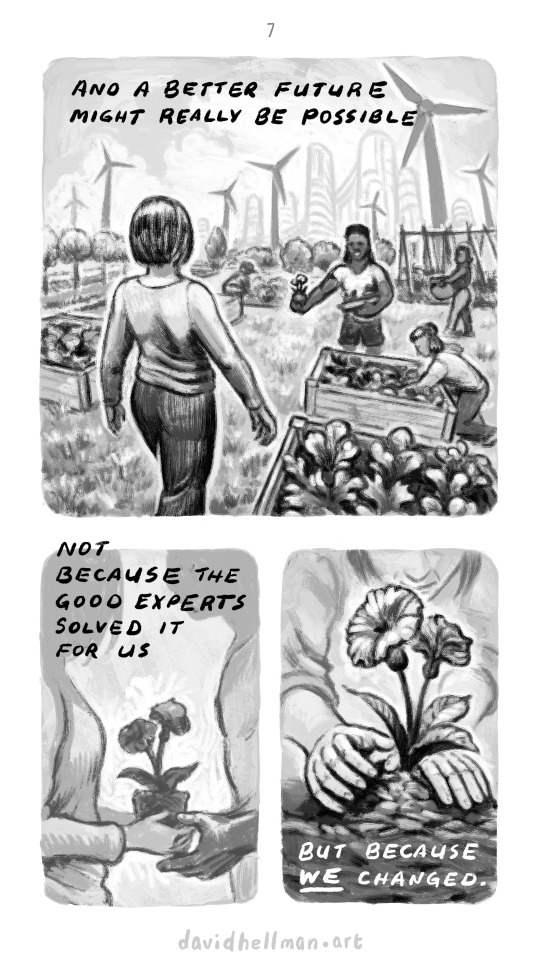hey there! Keen, 22. chronically ill. please be considerate. I tag very little. adhd, autistic. White. Pronouns are they/them, or anything interesting except she/her. If you have anything you feel like talking about, say hi! sideblogs: @cultivate-wonder @art-n-good-stuff
Don't wanna be here? Send us removal request.
Text
the main problem i have with america is that nothings old as hell there. i cant be so far away from a castle it damages my aura
123K notes
·
View notes
Text
Welcome to Trans Summer School! This series is meant to be a thorough guide for trans, non-binary, and other gender nonconforming folks (and for everyone else) to learn about all the different ways one can be trans. Check out the introduction above, or skip ahead to one of the sections below!
Trans Summer School: What's the Deal With Gender?
We've got more genders that you can shake a stick at in Trans Summer School, but what goes with who, where, when, and how?
Trans Summer School: So I Think I Might Be Trans. Now What?
There are lots of safe and fun ways to explore gender expression while you figure out who you are. So let's have at it!
Trans Summer School: Gender Expression Gear
A guide to finding items to help you express your gender.
Trans Summer School: Let's Bust Out of This Closet!
Coming out as trans doesn't have to be scary, as long as you have a little help from your friends.
Trans Summer School: Say My Name, Doc, and the Administrative Side of Coming Out
Who would have guessed that coming out involved so much paperwork? The deets on changing your records from the doctor's office to school files.
Trans Summer School: The Magic of Hormones!
The ins, outs, whys, and what fors of hormone replacement therapy and blockers.
Trans Summer School: The Wide World of Surgical Transition
What's the deal with "the surgery"? Learn your phalloplasty from your metoidioplasty and find out about the ins and outs of gender confirmation surgery.
Trans Summer School: Dating While Trans, Yes You Can!
The lowdown on how to date and have sex as a trans or otherwise gender nonconforming person.
Trans Summer School: When Things Go Wrong
Sometimes, bad things happen to you because you're trans or otherwise gender nonconforming. What can you do to get through them?
Trans Summer School: Am I Trans Enough?
In the final chapter of Trans Summer School, we take on a tough question many trans people encounter: Am I trans enough? (Spoiler: You are!)
183 notes
·
View notes
Text
Literal definition of spyware:

Also From Microsoft’s own FAQ: "Note that Recall does not perform content moderation. It will not hide information such as passwords or financial account numbers. 🤡

249K notes
·
View notes
Text
was talking to my mom about how white people ignore the contributions of poc to academia and I found myself saying the words "I bet those idiots think Louis Pasteur was the first to discover germ theory"
which admittedly sounded pretentious as fuck but I'm just so angry that so few people know about the academic advancements during the golden age of Islam.
Islamic doctors were washing their hands and equipment when Europeans were still shoving dirty ass hands into bullet wounds. ancient Indians were describing tiny organisms worsening illness that could travel from person to person before Greece and Rome even started theorizing that some illnesses could be transmitted
also, not related to germ theory, but during the golden age of Islam, they developed an early version of surgery on the cornea. as in the fucking eye. and they were successful
and what have white people contributed exactly?
please go research the golden age of Islamic academia. so many of us wouldn't be alive today if not for their discoveries
people ask sometimes how I can be proud to be Muslim. this is just one of many reasons
some sources to get you started:
but keep in mind, it wasn't just science and medicine! we contributed to literature and philosophy and mathematics and political theory and more!
maybe show us some damn respect
20K notes
·
View notes
Text





y'all it's about to get really fucking humid and hot
53K notes
·
View notes
Text
THE ENTIRE WEST IS BEING PUT UP FOR SALE AND I AM BEGGING YOU TO CALL YOUR SENATORS

Trump’s budget bill has many, many things in it, but buried amongst it is the MILLIONS OF ACRES OF PUBLIC LAND FOR SALE.
This is the entirety of the Arizona state forests, the entire Cascades mountain range. Swathes of pristine desert around the national parks in Utah. On the doorstep of Jackson Hole.
THIS BILL IS BIG, BUT IT CAN BE AMENDED AND ABSOLUTELY MUST NOT PASS AS IS please.
If you have ever enjoyed the wilderness, we stand to lose it all forever.
CALLING your senators - NOT JUST IN THE WEST. ALL SENATORS, is CRUCIAL.
Outdoor alliance has a great resource for reaching out.
I don’t have a huge following but please, everywhere I have ever loved, the forests I grew up playing in, the land I got married on, is all at risk and I am begging.
50K notes
·
View notes
Text
googling shit like "why do i feel bad after hanging out with my friends" and all of the answers are either "you need better friends" (i don't; my friends are wonderful) or "your social battery is drained, you need to rest and regain your energy levels" (i don't; i've got tons of energy, it's just manifesting as over-the-top neurotic mania). why is this even happening. it's like some stupid toll i have to pay as a punishment for enjoying myself too much
111K notes
·
View notes
Text
Oh to have a happy trail and a mustache also why are men always getting hurt shaving it seems easy but maybe that's bc i'm using a leg razor
508 notes
·
View notes
Text
Just absolutely astounding to hear the right talk about these medicaid cuts. "it'll only be illegals." "it's only able bodied people who will now have to work" even though 92% of eligible adults on medicaid who can work, do work. "no one who needs it will be affected in any way"
.... The proposed cut is $880 billion over 10 years. The current medicaid budget is $890 billion for 2025. But the government has yet to produce a single drop of evidence of this amount of fraud. No proof. No concrete examples. No actual audit. Just numbers pulled out of someone's ass.
Meanwhile, studies have shown the $880 billion cut will result in at least 13.7 million Americans (not "illegal aliens") losing their coverage and 30,000 American deaths.
Please tell me how that's only illegal immigrants or able bodied people? These cuts will kill American citizens. They'll further destroy our already crumbling healthcare system, especially in rural areas. All to give the rich another tax cut.
What is patriotic about that? If you love your country, you want the best for it's citizens. This is not the best.
Please call your representatives and tell them hands off medicaid. The five calls app makes it extremely easy. It connects you directly to your reps and gives you a call script. Please fight to save American lives.
3K notes
·
View notes
Photo








My comic about why we should all be activists. Made possible by my wonderful patrons at patreon.com/davidhellman Please share, and get involved in your local community!
51K notes
·
View notes
Text
39K notes
·
View notes
Text
god bless our troops [the ppl at ublock origin who keep updating the filters to keep working on youtube]
100K notes
·
View notes
Text
Body Autonomy is Love. Freedom is Love. Planned Parenthood is Love.
With Valentine’s Day rapidly approaching, let’s contemplate the heart: the symbol, I mean, not the striated muscle thudding in our chests. The heart symbol, squat, cute, and easy to draw as it is, barely resembles the off-balanced, lumpy reality of our arteries and valves. That’s because human biology is not at all where the heart symbol came from.

That lovely, pinkish-red icon of ardor, curved and pointed in equal amounts, comes from the shape of the silphium plant, which was used in ancient Egypt and Crete as a form of hormonal birth control. The plant was so effective at granting people control of their bodies and their cycles that it was harvested to extinction. It was all but non-existent by the rise of the Roman empire.
Yet people remembered the wide, two-chambered seed and its curative ability to prevent pregnancy, the freedom it granted people to love and control their own bodies, and they cherished that freedom so much it became a symbol of love itself.
Control of your body is love. Freedom is love. Humanity has always known this. The history of contraception is a testament to it.
After the silphium plant died out, people resorted to more desperate means of family planning. People stuffed their vaginas full of honey, crocodile dung, and leaves; pregnant people seeking abortion intoxicated themselves with queen anne’s lace, myrhh, and rue. In China in the 7th century BC, people self-induced sterility by drinking quicksilver and oil. These means were risky, but for many, worth it; a few days of poisoning beat nine months of pain and an ensuing lifetime of bondage.
And let’s be clear: if body autonomy is love, if freedom is love, if birth control itself is an emblem of love, then abortion is love too. Seeing it as a hateful, murderous act is a recent fiction. Before 1484, when Pope Innocent VIII railed against the practice, abortion was seen as benign, even liberating. People from all walks of life on all the earth’s populated continents induced abortions on themselves, with few moral concerns. They knew, better than we do today, that a person’s body is their own to use, and that carrying a fetus to term is just one of many potential uses, neither superior nor inferior to any others.
But we live in a world tainted by the opposites of love: hatred, and the desire to control and own others’ bodies. For centuries, now, men in power have tried to rebrand contraception and abortion as evil. Pregnancy has been forced on people for the sake of producing society’s workers and foot soldiers, from Ceausescu’s Romania to the modern-day Quiverfull movement. Men feuled by hate have sought to define womanhood by the ability to reproduce, and have sought to control women through the obligation to engage in it.
This funhouse mirror of repression recast love as sin, and bodily autonomy as perversion. Freedom was taken with the pretense of saving souls. Even those of us who know the truth feel the stigma. We’ve internalized the hate. It burns us from the inside, makes us doubt the legitimacy of our identities, our desires, how we use our bodies.
How do we fight it? With love.
We show love when we choose for ourselves what our bodies mean and what they will be “for”. We show love when we honor and uplift others’ choices. We show love when we say no with no explanation or apology. When we take birth control, or abortifacients, or testosterone, or spironolactone and estrogen, we show love for ourselves. When we learn about history, and realize that the morals of the present did not always hold sway, we love the world as it could be, instead of how it is.
Planned Parenthood and places like it fight hate with love every day. They loved me when an ex-boyfriend left me with painful tears on my vulva. They loved me when I could not bear looking at my weight on the scale, by encouraging me to turn away from the numbers. Planned Parenthood loved me by providing medical forms with a variety of gender and pronoun options. They showed me love by screening for domestic violence circumspectly and gently, letting me arrive at insight on my own. A nurse practitioner at planned parenthood loved me by allowing me to forgo an annual pap smear when I was too beset with genital dysphoria and trauma to be able to endure one, and giving me a birth control prescription anyway.

Planned Parenthood, and places like it, show love every day to those of us who need abortions and birth control – and I say people very deliberately, not women, as not all of us are. Planned Parenthood loves trans women, too, by providing hormones and testosterone blockers in a dozen states. Planned Parenthood loves men by providing them with STD tests, condoms, domestic violence services, and testosterone. Planned Parenthood loves people who need mammograms, flu vaccines, body image counseling, sports physicals, and help quitting smoking, because body autonomy and freedom is love, and that love takes many forms.
I show love to others by remembering the vitality of freedom and body autonomy. By telling my sister that I will always be ready to pay for an abortion if she needs it, no questions asked. By calling my legislators to fight restrictions on abortion and contraceptive access. By defending the freedom of people whose bodies are still frequently controlled and oppressed– black people, refugees, trans people, disabled people. I show love by talking with other domestic violence survivors, by writing very publicly about body image, trauma, gender, and sexism. I also show love by donating to Planned Parenthood, though I can never pay back the love they showed me. But then, real love is given freely with no expectation of reward. Real love is freedom. That’s the whole point.
———
This piece was originally performed live at the Uptown Underground for Lady Business, a benefit for Planned Parenthood and Chicago Women’s Health Center.
46 notes
·
View notes
Text
Psychologist Katharina Bernecker and her colleagues measured participants’ tendency to engage in self-control as well as their hedonic capacity, in other words, their ability to experience pleasure. As the design of this study implies, people vary in their ability to enjoy things! Some people just experience pleasure more readily and are more motivated by pleasure than others! This alone should lend you some comfort, I think. If you are not an especially pleasure-wired person, whether by trait or by trauma, you are far from alone.
People high in hedonic capacity were people who tended to agree with the following statements (note, some at the end of the list are reverse-scored):
I am good at pursuing my desires. I can follow my desires in the here and now. I often do what I feel like doing. In my spare time, I can relax well. In my spare time, I can "switch off" well. In my spare time, I find it difficult to turn off thoughts about what is still left to do. Thoughts about my work sometimes prevent me from enjoying pleasant activities and moments. Sometimes I cannot stop myself from thinking about things I still need to do. I often think about my duties even while I am enjoying a good moment. I often think after the fact that I should have enjoyed the moment more.
These high hedonic capacity pleasure-seekers were compared with people high in self-control, who tend to agree with the following items (or to disagree with the reverse-scored items, which are marked with a minus sign):
1. I am good at resisting temptation. 2. I have a hard time breaking bad habits. - 3. I am lazy. - 4. I say inappropriate things. - 5. I do certain things that are bad for me, if they are fun. - 6. I refuse things that are bad for me. 7. I wish I had more self-discipline. - 8. People would say that I have iron self-discipline. 9. Pleasure and fun sometimes keep me from getting work done. - 10. I have trouble concentrating. - 11. I am able to work effectively toward long-term goals. 12. Sometimes I can't stop myself from doing something, even if I know it is wrong. - 13. I often act without thinking through all the alternatives. -
If you are a person who has masked your Autism traits for a long time, or otherwise carefully regulates how you present yourself and the choices you make about your behavior, then congratulations, you are probably a very high self-controlling individual. And if you find it very difficult to slow down in the moment or experience pleasure, you probably don’t have a very large hedonic capacity.
In a series of three studies, Bernecker and colleagues looked at how high self-control and high hedonic capacity individuals approached spending their free time. When given an hour to spend however they liked, participants who were high in hedonic capacity (in other words, the ability to enjoy pleasure) preferred to pursue activities that they ranked as highly pleasurable, including baking, eating, napping, talking with a loved one, or taking a walk. Conversely, individuals who were highly self-controlling were more likely to spend their time doing activities that they ranked as meaningful (such as reading, working, gardening, doing chores, or working out).
It might sound pretty self-evident that people who are interested in pleasure choose to spend their time on pleasure and that people who exert a lot of restraint over themselves choose instead to take part in activities they find meaningful. But what’s really interesting here, I think, is how much participants enjoyed the activities that they selected and found them satisfying.
It turns out that high self-controllers didn’t just decide to spend their free time doing laundry or working because they felt they should do so. They also got more satisfaction from meaningful tasks, more than if they had chosen to spend their time on supposedly ‘pleasurable’ activities. They were not motivated by the pursuit of straightforward pleasure. They ranked reading a book, knocking an item off the to-do list, or lifting some weights as more enriching, fulfilling, and motivating for them, and they cared more about these aspects of life than they did about pleasure! Individuals high in hedonic capacity, in contrast, preferred and were more satisfied with activities they said left them feeling soothed, amused, relaxed, indulged, and so on.
This study points to the fact that happiness is not everything, and people actually differ quite dramatically in which ways of spending their time make their lives better. And that means there are no recommendations for leading a good life that are one size fits all.
If you are someone high in self-control and low in hedonic capacity, you may have had the frustrating experience of trying to lay back and relax on your day off and being unable to quiet the whirring of your brain. You take a bath, but you can’t keep your eyes off the soap-scummy grout that needs to be scrubbed off. You share a languid restaurant meal with a best buddy, but through every course you can’t help but think about the items on your to-do list and grow panicky and bored.
Now of course, an inability to enjoy activities can come from burnout, depression, or excessive pressure to be productive. But you also might feel frustrated when you seek pleasure because you are just not wired to enjoy pleasure right now, and would find it easier to let go and enjoy yourself if you had an interesting challenge to keep you busy instead. Many Autistic people find working on a project related to their special interests to be a far better way of recharging their energy and lifting their mood than attempting to “relax” or have fun in neurotypical-approved ways. You may find, Anon, that the same is true of you.
In Bernecker and colleagues’ paper, participants high in self-control tended to appreciate activities that they described with the following adjectives. Why don’t you take a moment to read through this list, then write down what life activities feel this way for you?
What Activities Feel:
Meaningful?
Worthwhile?
Fulfilling?
Productive?
Important?
Purposeful?
Inspiring?
Elevating?
Motivating?
Enriching?
An interesting challenge of Autism unmasking is figuring out what a worthwhile life even feels like for us, and abandoning the expectation that such a life will feel the way it does for non-Autistics. Our best lives might not look happy, outgoing, energized, extroverted, or anything else that we have been taught it has to be.
I wrote all about the inability to experience pleasure, the fact that we evolved to be anxious more than to be happy -- and how to make life worthwhile in spite of it all. You can read the full article for free on my Substack.
#I've been thinking about this kind of thing because I really want to enjoy things and often don't feel much of what i see others feeling#reading
279 notes
·
View notes


